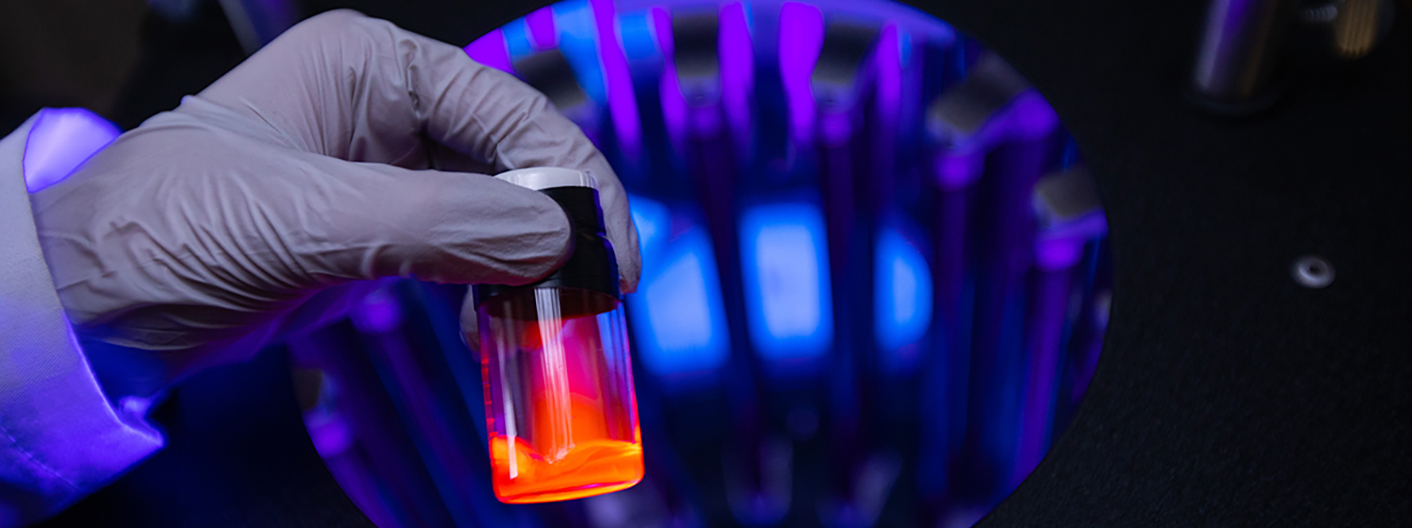The Iowa State University research grand challenges are underpinned by LAS areas of research excellence.
Biological Structures and Systems
The research area of Biological Structures and Systems builds on ISU’s strengths in the life sciences. Strong interdisciplinary collaborations already exist across the biological and physical sciences, with significant impact on drug development and delivery, biomass production, food production and safety, as well as human, plant and animal health. The emerging Carver Trust initiative provides a unique opportunity to build a world-leading group in structural biology. ISU’s expertise in plant biology and agricultural technology offers numerous avenues for high impact applications of new fundamental discoveries in partnership with the private sector. This theme is rich with economic, psychological, and philosophical implications, from biosafety to ethics, communications, and science policy which invite a close integration with scholars in the social sciences and humanities.
Complex materials
The area of Complex Materials builds on strengths in the physical and biological sciences and leverages our vibrant collaborations with the Ames Laboratory. The focus is on the synthesis, characterization, and modeling of new or enhanced materials with controlled properties. Specific topics of interest include rare earth compounds, novel magnetic materials, biofunctionalized nanostructures, and catalytic processes. Experimental and computational/theoretical work is, and will continue to be, closely integrated. This research is critically important for major societal needs, ranging from energy-related technologies to the remediation of environmental pollutants. As we move from discovery to technology transfer, expertise from the social sciences and humanities will be integrated, ranging from survey design to social and economic valuations of technological solutions and science policy.
Data-rich environments
Data-Rich Environments leverages strengths in the mathematical sciences and provides completely new avenues for research in the social and behavioral sciences. The emergence of enormous amounts of data, from astrophysics and climate research to consumer purchasing information, presents new challenges in discovery informatics. At the same time, these massive data sets offer unprecedented opportunities for data-driven research in the social sciences and the humanities, allowing for much more comprehensive studies of human language, imagination, communication and behavior. Federal funding agencies have initiated major investments in this area; ISU and LAS are well positioned to shape the agenda of these programs. This theme also opens numerous paths towards constructive engagement with partners outside academia.
Economic, environmental and societal sustainability
The research area of Economic, Environmental and Societal Sustainability builds on strengths across the whole college. Sustainable systems which promote quality of life on earth involve complex interactions between natural and human ecologies. Renewable resources will play an increasingly essential role in providing for basic needs such as water, food, and shelter. Social, economic, and political systems can support other important aspects of human life such as physical and mental health, a clean and desirable environment, meaningful and rewarding work, and full participation in a just and equitable society. Research under this theme will seek to describe and predict the interdependence of natural processes and human behaviors and propose sustainable practices and policies.
Global citizens, education and technology
The area of signature theme of Global Citizens, Education, and Technology builds on the core educational mission and strengths of LAS. To thrive in a global, rapidly changing world, future leaders must be scientifically and culturally literate individuals who are able to live and work effectively in diverse communities. LAS holds a leadership role in providing life skills in critical thinking, communication, mathematics, and science. As new pedagogies and learning technologies transform the landscape of higher education, LAS will continue its entrepreneurial and creative work in developing innovative educational programs and researching the interplay among learning, technology, and the human experience. This theme blends our educational commitment to develop national models for higher education in the 21st century with our strengths in anticipating and understanding how technology changes the nature, pace, and types of global problems and possibilities.

